CLIMATE CHANGE
Perjalanan Lestari: An Act of Sustainable Travel
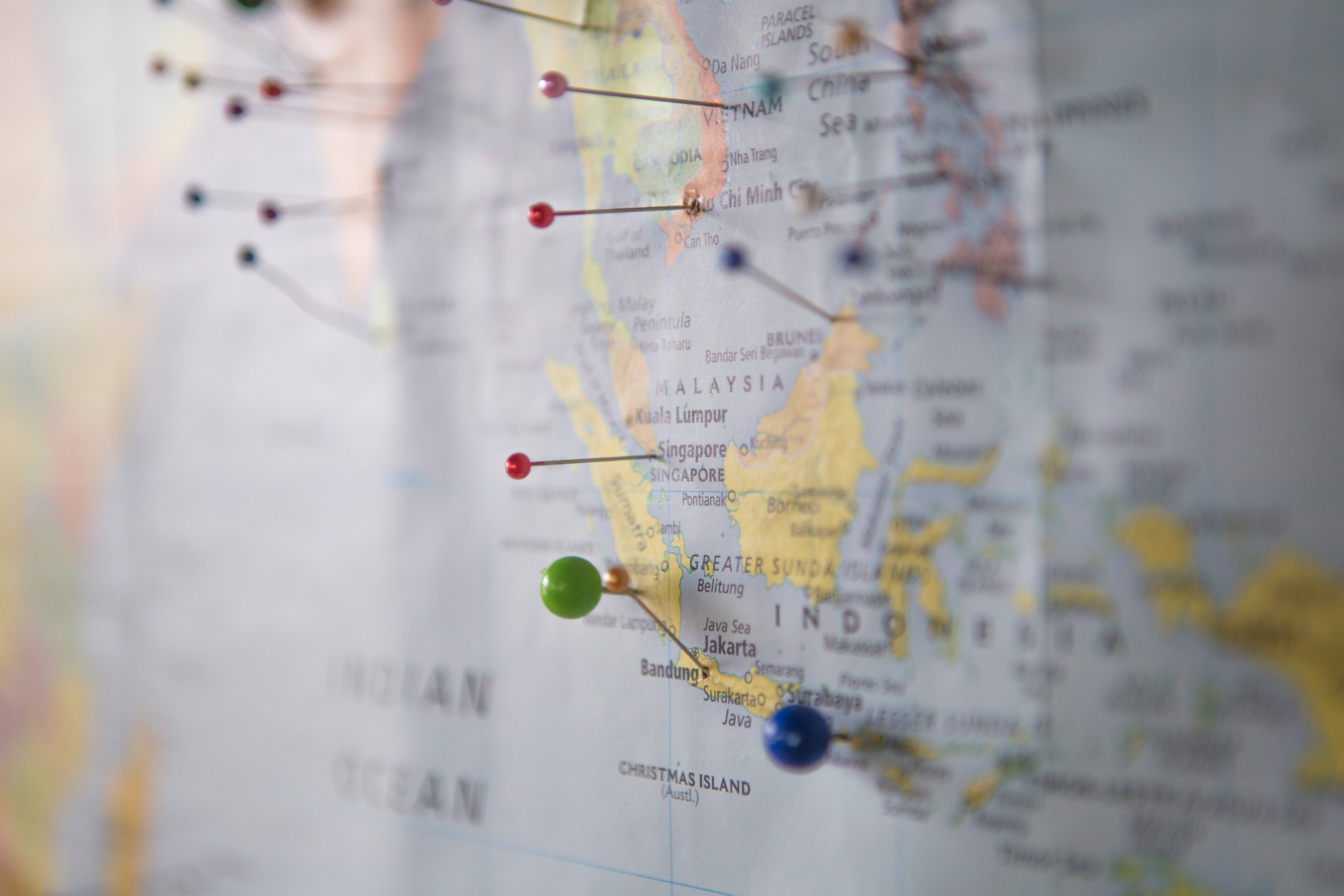
Climate change is a real thing and no human can escape from its consequences. This climate change occurs because of the lifestyle of modern humans today in various sectors, one of which is the tourism sector. This sector also contributes 8% of the world's carbon emissions, which are sourced from mobile transportation during travel, souvenirs, food and beverages, and others. As people's desire to travel increases, carbon emissions from this sector also increase, especially if the pandemic conditions are over and the ban on traveling to foreign countries is no longer prohibited.
Facing these problems, the government through the Ministry of Tourism and Creative Economy has regulated the development of sustainable tourism which is regulated in the Regulation of The Minister of Tourism for The Republic of Indonesia Number 14 of 2016 on Guidelines for Sustainable Tourism Destinations. Sandiaga Uno, the current Minister of the Tourism Republic of Indonesia, said that he would continue to make efforts to verify and certify tourist destinations that have implemented standards for sustainable tourism destinations. Not only that, but the government has also prepared several environmentally friendly tourism programs, including the development of plastic waste management in tourist destinations and reducing the carbon footprint of tourists.
As tourists, we must also contribute to achieving sustainability in the world of tourism. FNF Indonesia, in collaboration with Climate Institute, Ministry of Law and Human Rights, and TelusuRI aim to promote the creation of sustainable travel by conducting a series of workshops titled “Sekolah Telusuri: Perjalanan Lestari”. This workshop started from June 6 - June 28, 2021 and was attended 45 content creators from all over Indonesia. As the opening of the workshop, we conducted a webinar discussing about Sustainable Traveling on June 6, 2021, on TelusuRI+ YouTube Channel. With this first activity, we hope to raise public’s awareness about the idea, concept, and relation of sustainable travel with climate justice.
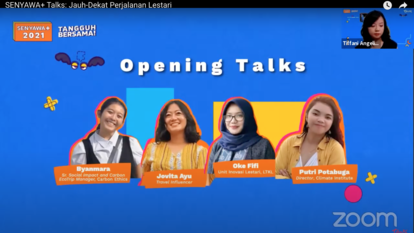
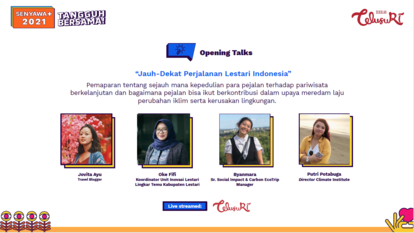
Conceptually, what is sustainable travel? Based on the understanding of the World Tourism Organization, sustainable travel is tourism that takes full account of its current and future economic, social and environmental impacts, addressing the needs of its visitors, the industry, the environment, and host communities. The focus lies on these 3 aspects, namely on the economic, environmental, and social aspects.
Putri Potabuga, Director of Climate Institute, one of the speakers from this webinar said that there are many forms of initiatives that we can do in these 3 aspects. “To travel sustainably, we need to decrease our carbon footprint as much as possible by using greener modes of transport. On the other side, when we are in the tourism area, we could show initiative of travel sustainably by supporting local business financially by buying their products, therefore the money is funneled directly to the local economy. This also helps to grow the local communities,” Putri said.
This statement was in line with the definition of a wise traveler by one of the speakers, Jovita Ayu, a travel influencer. “Being a wise traveler is when we as travelers, as humans, humanize a place with all its contents before, during, and after visiting it,” Jovita said.
Being a wise traveler is when we as travelers, as humans, humanize a place with all its contents before, during, and after visiting it

Sustainable travel has become a popular issue in society and many communities and organizations are focusing on this issue with various initiatives, such as CarbonEthics and Lingkar Temu Kabupaten Lestari. The webinar was also attended by Byanmara, Senior Social Impact, and Carbon EcoTrip Manager, and Oke Fifi, Coordinator of the Sustainable Innovation Unit, Lingkar Temu Kabupaten Lestari (LTKL). In her presentation, Byanmara explained the initiatives undertaken by CarbonEthics through the Carbon EcoTrip program and the Climate Positive Trips campaign to help create sustainable travel. In addition, Fifi explained several activities that have been carried out by LTKL in several areas, one of which is in Sintang Regency, West Kalimantan. This showed how important it is to develop ecotourism-based tourist destinations, especially for improving the economy of the people in the area.
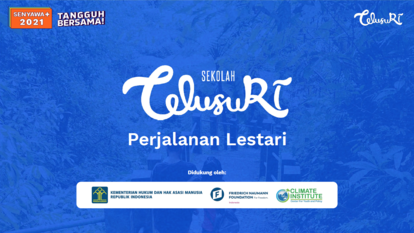
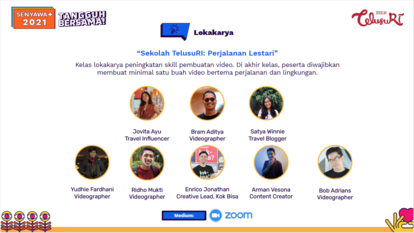
Continuing with the program, a three-week workshop was conducted to further provide a thorough understanding of sustainable travel. Over the course of three weeks, the participants were given training on content creation from various speakers such as Bram Aditya, an independent filmmaker; Satya Winnie, a travel influencer; Arman Firmansyah, a content creator on the TikTok platform; Enrico Jo, Creative Director of Kok Bisa; and Jovita Ayu, a travel influencer. In the pre-production workshop, the participants were given the opportunity to learn about basic cinematography, content development, and storytelling. In the production and mentoring period, the participants were able to consult about storyboards and video footage. In the last workshop, the participants and resource persons discussed topics related to the post-production stage in video making; from video and audio editing to publication and promotion.
Seeing the increasingly worrisome condition of climate change, it is time for us to act quickly to solve the problems that cause climate change in every sector, including tourism. At the end of the day, the development of sustainable tourism is a collaborative process and requires the cooperation of all parties, including the content creator. Therefore, this workshop aims to provide a learning and networking platform for climate-content creators which ultimately generate engaging climate-related educational videos in the future.
*This contributed article is written by Arief Balie, who works as an intern for Climate Project in FNF Indonesia.